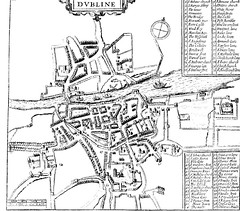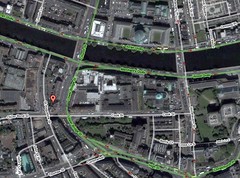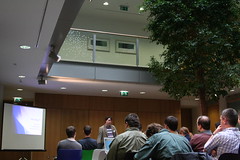1. Whether the government is supporting introduction of a Broadcaster’s copyright in the negotiations on the treaty
The European Community and its Member States, including Ireland, have supported the efforts over the past decade or so at WIPO to update the system established by the 1960 Rome Convention. Ireland signed the Rome Convention for the Protection of Performers, Producers of Phonograms and Broadcasting Organizations in June 1962, and ratified it in September 1979. It may be that some of the concerns here arise from the US not being a party to the Rome Convention. The 1960 Rome Convention would be widely regarded as being insufficient to deal with the intellectual property issues now arising, in particular, as a result of technological developments ; one example is that the digitization of signals and other technological developments since 1960 have made signal piracy and theft easier.
The recent meeting of the WIPO Standing Committee recommended to the next WIPO General Assembly (to commence on 25 September 2006) to decide that a Diplomatic Conference be convened in July 2007, with the aim of concluding a new Treaty. It is now expected that the proposed Treaty will only cover traditional broadcasting. The efforts made in recent years to expand the scope of a new treaty to internet-based web casting and simulcasting have been set aside for now in this context but these are thought likely to resurface separately at WIPO in the near future. Many developing countries had opposed the inclusion of web and simulcasting.
Ireland has long supported the efforts by WIPO, as the preamble to the current Draft Basic Proposal puts it, “to develop and maintain the protection of the rights of broadcasting organizations in a manner as effective and uniform as possible”). The preamble also recognizes “the need to maintain a balance between the rights of broadcasting organizations and the larger public interest, particularly education, research and access to information”. There are many NGO’s represented at the relevant meetings, and they regularly interact with the member states.
There is no question of the rights of existing classes of copyright and neighbouring rights holders being subjected or subordinated to new broadcasters’ IP rights. These other classes are principally the suppliers of content to the broadcasting industry, including composers and arrangers of music (primary copyright), dramatists (primary copyright), authors of literary works (primary copyright), authors of artistic works and films (primary copyright) and producers of sound recordings (neighbouring right). By “primary copyright” is meant exclusive rights to perform or permit others to perform certain acts such as copying, making available through the Internet or distribution, as compared with “neighbouring rights”
The intended measures to improve the (neighbouring right) IPRs of broadcasters internationally should not be seen as inconsistent with the preservation of the rights of existing rights of primary and secondary rights holders. While some non-broadcasting rights holders may have concerns that this may impact their position; WIPO Performances and Phonograms Treaty of 1996, adopted an enhancement of the Rome Convention system in an area (the rights of phonogram producers) that, under Rome, would have been regarded, in effect, as “linked at the hip” to broadcasters’ IP rights.
The EU, has adopted an intermediate position towards the coverage of online technology – whereby simultaneous online making available of material also made available to general or broadcasting organisations to members of the public – should be protected at the same level as broadcasts ; there are serious difficulties in the way of concluding a treaty that will add sufficient value to the effect of the Rome Convention in relation to the protection of broadcasters’ IP rights. Again, member states of the Rome Convention (including Ireland, and most if not all EC Member States) are precluded from the terms of that Treaty from committing themselves to international agreements falling short of the terms of Rome in relation to the rights of broadcasters, phonogram producers and the rights of performers.
2. Whether the Irish Government is represented at the negotiations by Irish Officials or by an organ of the European Union.
WIPO is the UN body dealing with IPR and all member countries attend its meetings
Ireland has normally attended all of its General Assemblies as well as the more specialized meetings egg SCCR meetings in this particular negotiation process. At these meetings it has been the norm that the Commission or the EU Council Presidency–in-Office speaks for the 25 Member States as well as the candidate member countries. However the EU Presidency or the Commission and the wider Group B (industrialized countries) do actively co-ordinate with Member States in advance of, and/or during meetings, to ensure that there are so far as possible shared approaches on identified issues.
At the WIPO meetings it is normal for all member countries of WIPO to be formally represented in their individual capacities. The European Commission has normally taken part up to now as an inter-Governmental organization. The EU process of co-coordinating positions is not a formal part of the WIPO process but still plays an important role for Community member states and the wider operation of WIPO. The practice of the Community in copyright matters is that Member States do all-possible to agree common position (even where mixed competency might be involved) in advance of a negotiation, and thereafter, to try to co-ordinate any revisions of position closely. All Member States are kept up to date on developments during WIPO meetings by way of consultations when appropriate. It is therefore usual, in the WIPO forum, for the Commission to speak for all Member States when intervention is deemed necessary, on the basis that all member States’ views and concerns have been taken into account earlier.
3. If the latter, would any agreed treaty signed be considered to have been signed by the EU, or merely as having been signed by the EU on behalf of its member states?
The member countries sign WIPO treaties in an individual capacity but in areas of clear EU competence such as copyright, the Community is increasingly now also signing and ratifying such in parallel with the member states. Again the current draft treaty text in this case includes three options but the SCCR has recommended that eligibility to become party to the Treaty should be unconditional, open for all Member States of WIPO, as well as for intergovernmental organizations. If a Treaty is agreed in this case, the present indication is that each WIPO member (including each EU Member State) would sign separately.
4. Finally
Please feel free to offer any views, comments or concerns on the draft treaty; the text of which is in Doc SCCR15/2 at
http://www.wipo.int/meetings/en/details.jsp?meeting_id=11264
There are for now a large number of alternative wordings and up to five alternatives in the case of some draft Articles. Further revisions and new versions of various articles are also still likely.







